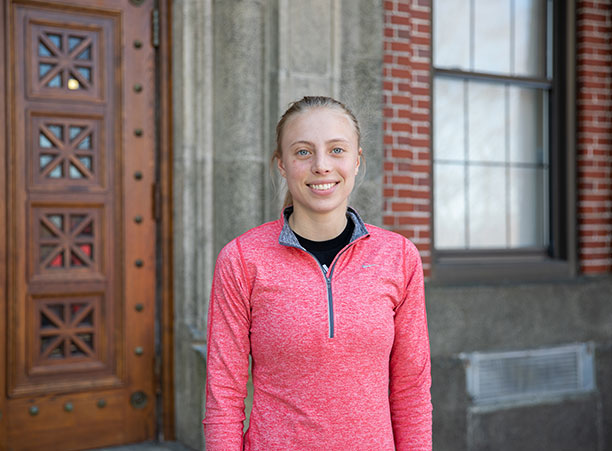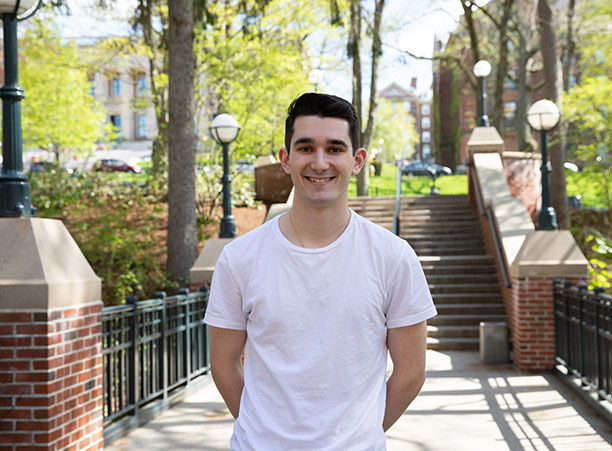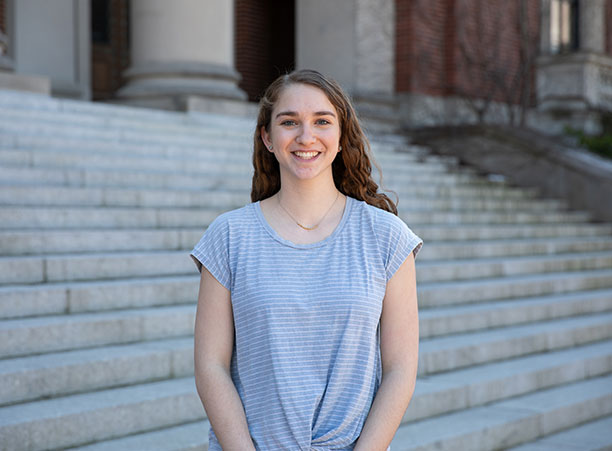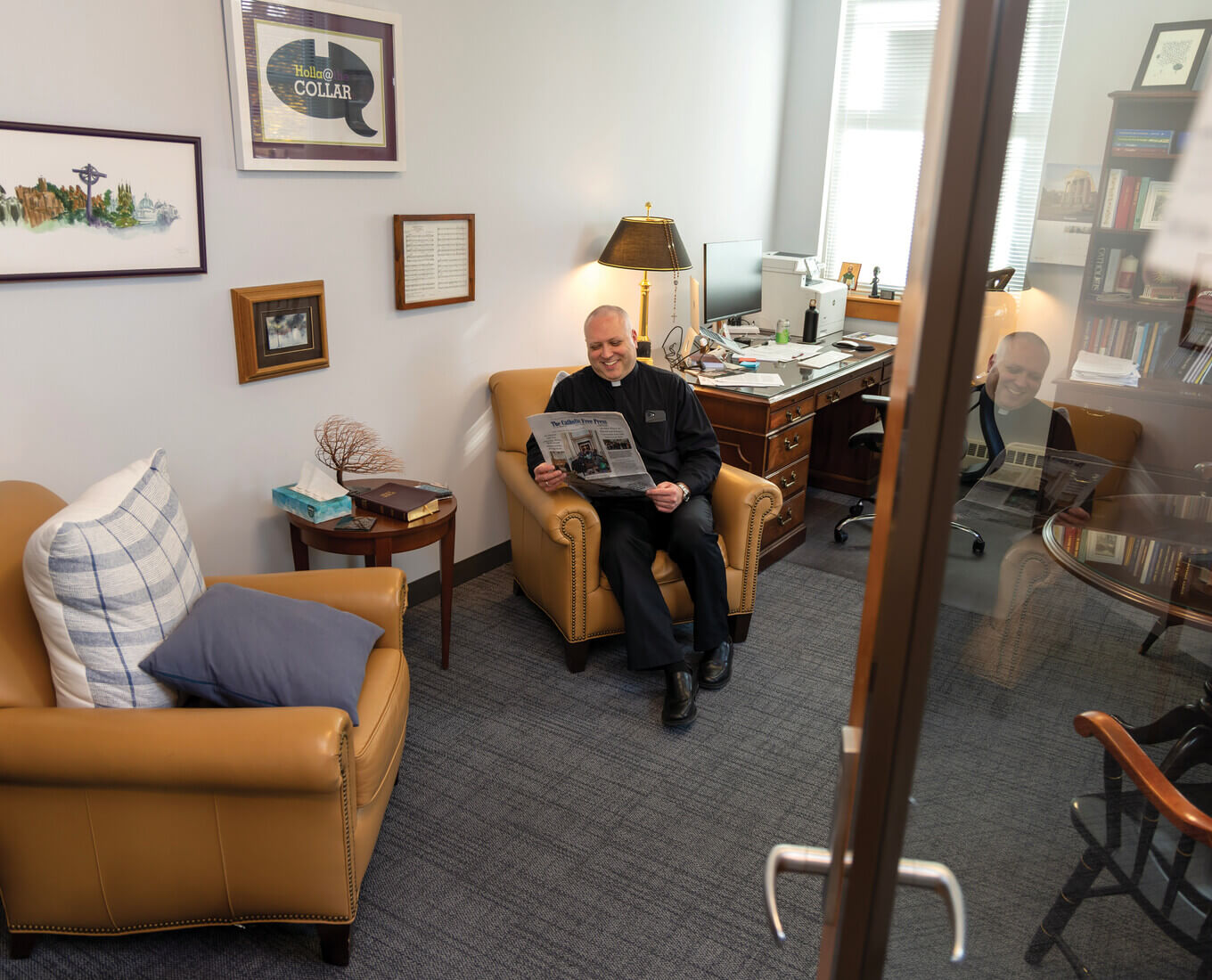
For the 2019-2020 academic year, 261 College of the Holy Cross students are living and studying abroad — in other terms, roughly 8% of the student body is spread out, learning around the globe.
Seventy-six of these students are spending an entire academic year abroad in one (or two!) of 17 countries — Argentina, Australia, China, Ecuador, England, France, Germany, Greece, Ireland, Italy, Jordan, Panama, Peru, Russia, Scotland, Spain and Tanzania. The College's long-term study abroad program allows students to put down deep social and academic roots in other countries.
Recently, Holy Cross was named No. 1 among baccalaureate institutions for long-term study abroad participation by the Institute of International Education — the 11th year in a row the College has held one of the top three spots. According to the report, Holy Cross sent 90 students abroad for a full year in the 2017-2018 academic year, leading over Spring Hill College with 71 students and Sarah Lawrence College with 57 students.
Through a structured experience abroad, Holy Cross students are given the opportunity to enhance their academic opportunities and experience significant personal and cultural growth. There's no one better to talk about study abroad, though, than the students themselves. Below, find some insight from our study abroad bloggers as they've navigated living and learning in another country.
Yaoundé, Cameroon

Name: Grace Manning '21 Major: English and French double major with a concentration in peace and conflict studies Abroad Location: L’Université Catholique d’Afrique Centrale in Yaoundé, Cameroon
After spending time with La Reine Blanche, we went to visit the Chefferie Batoufam, or the Batoufam Chiefdom. The chief was at a funeral celebration (November is the month of funerals here and funerals take place whenever the family has enough money to organize them, so it can be many years after the person’s death). We explored his kingdom with his cook as our guide. The buildings are intricately decorated with paintings, wooden carvings and metal weapons that all have specific meanings and significance to the chief. Interestingly, the kingdom is built on a hill so as you enter it, the different rooms have doors that get smaller and smaller which was to make it difficult for enemies to rush through. We hung out with the chief’s pet monkey, Arthur, who was very friendly and proceeded to immediately groom me and climb all over us.
Dijon, France

Name: Jacob McDonald '21 Major: Computer science and French double major Abroad Location: Université de Bourgogne in Dijon, France
I think having a host family is easily the best way for me to not only speak French daily, but to speak it a lot. From time at dinner to casual conversations watching TV, to complaining about the day’s work or course-loads, there is always plenty to talk about. And to that end, when there is a lot to talk about, there are certain ways to talk. And what I mean by that is that the manner in which the French speak is different than that in which Americans speak. Over the past couple of months, you start to realize that you hear certain words not only a lot, but every day. And being on the road to improving language fluency, it is precisely these little things that will develop the language.
And to this end, I have realized one trick, if you will, to fast-track a development in the language:
The way the French talk? Copy it.
And I mean it literally; these words and phrases you hear day after day after day… it means something, doesn’t it? It’s the way the French speak, and as a French major…is that not kind of the goal?
You hear a new word? Write it down. A new phrase? Write it down. A new expression? Write it down. And then use them as often as you possibly can until you don’t even realize that you’re saying them because it has become a part of your regular vocabulary. I am by no means there yet, but that is the goal – one that I hope to have by May.
Lima, Peru

Name: Sarah Shorter '21 Major: Anthropology major with a concentration in Latin America, Latinx, and Caribbean Studies Abroad Location: Pontificia Universidad Catòlica del Perú in Lima, Peru
Thanksgiving this year was quite a bit different than my normal American Thanksgiving. While I actually have been out of the country for Thanksgiving in the past, this year felt especially different because I would be celebrating the day with people who don’t know much about the history of the holiday or the “normal” traditions. But as my dad made sure to remind me when I was complaining about not having my favorite foods for Thanksgiving this year, “it’s about the people you spend the day with,” and not what you eat.
This past Thursday I had a wonderful brunch with my host parents and my host aunt [I’ve never called her that but I guess technically the sister of my host mom would be my host aunt…]. My host mom made turkey, potato salad, a salad, rice, and humitas. To share with my family one of my favorite Thanksgiving dishes, I attempted to make sweet potatoes. I had to improvise a bit due to the usage of a different form of oven than I would usually use, but in the end they still turned out delicious! Before the meal, my host family had me say my thanks and my host mom also said a few thanks. The meal was quite nice and was a fun time to chat about Thanksgiving, Black Friday, and American traditions.

